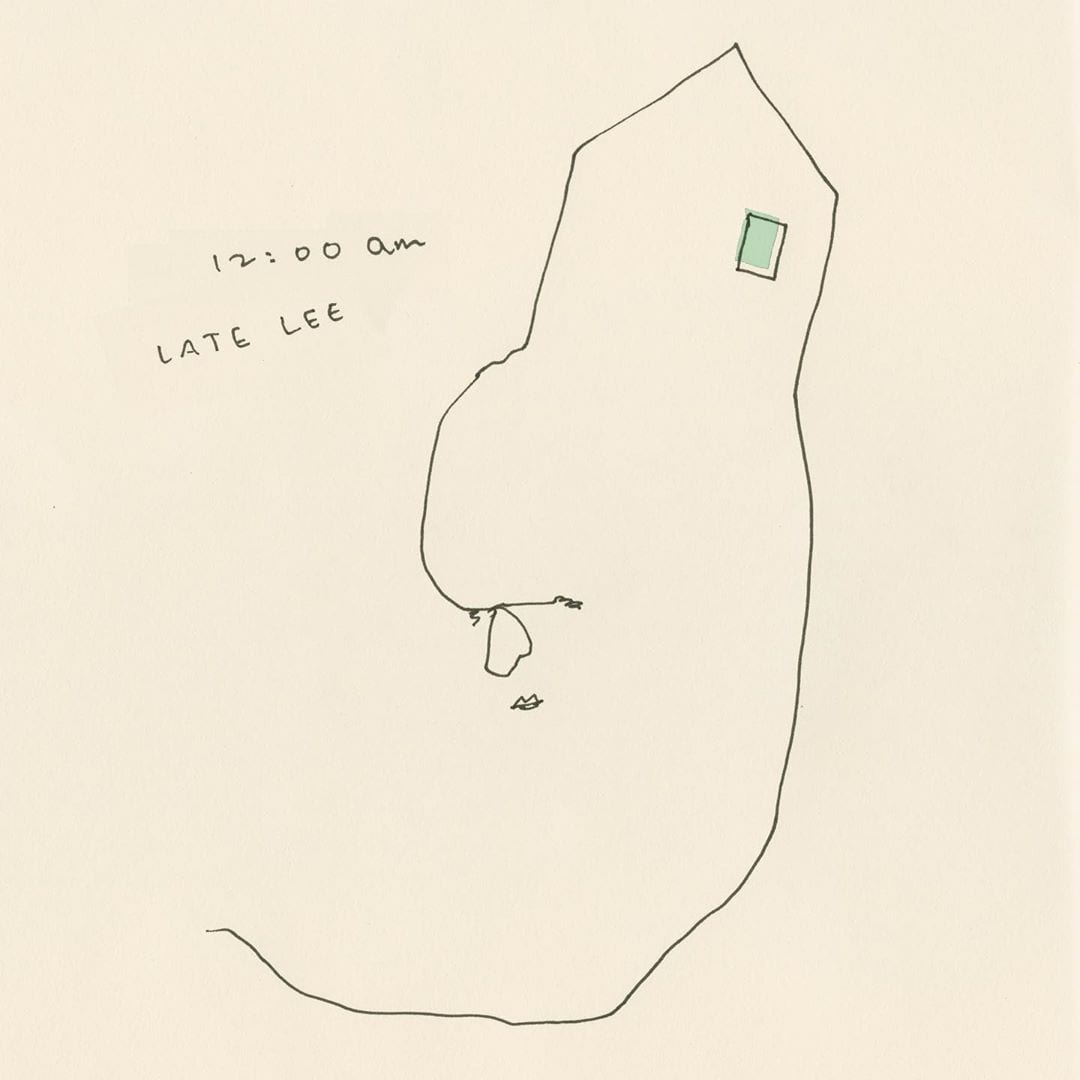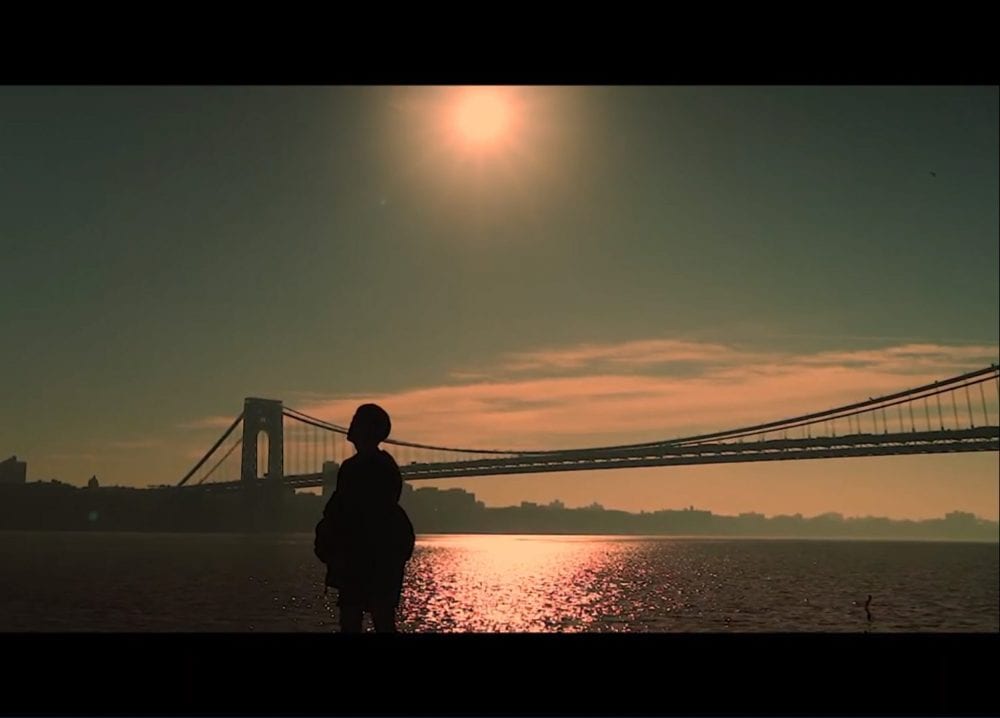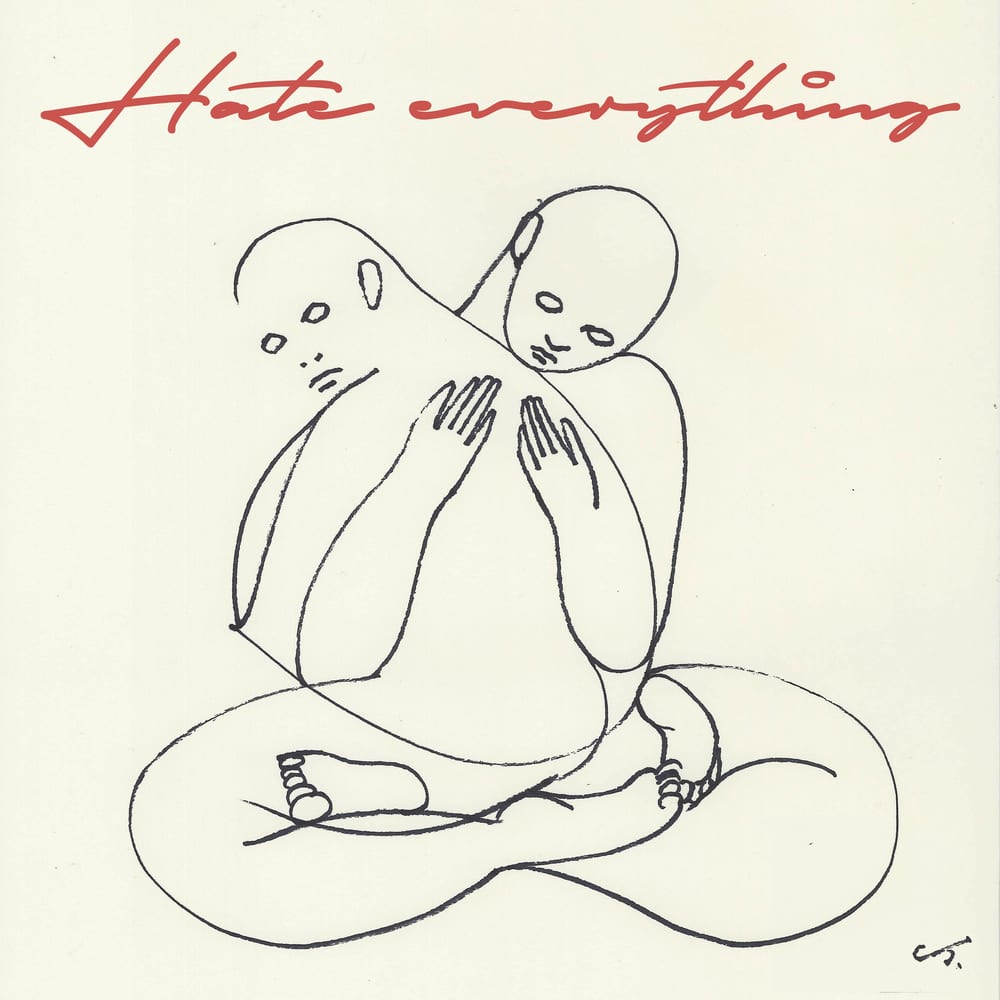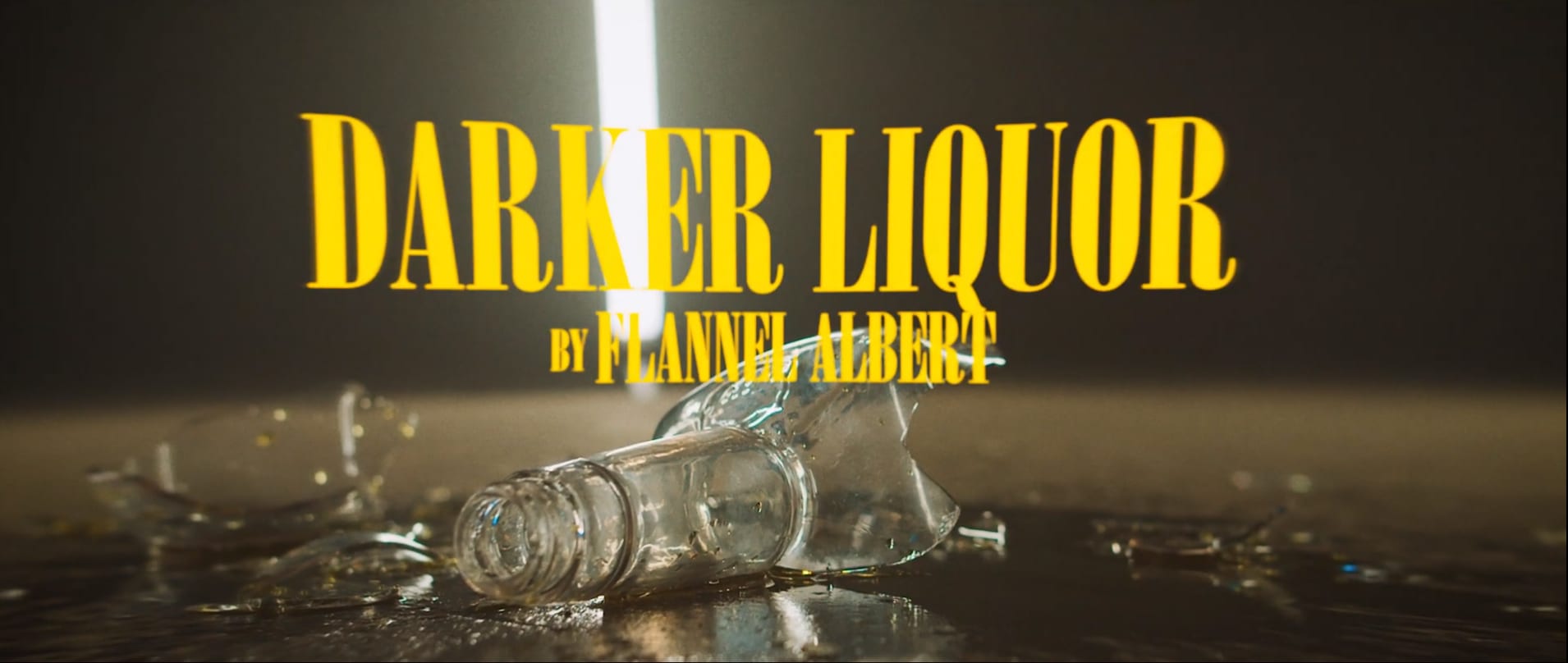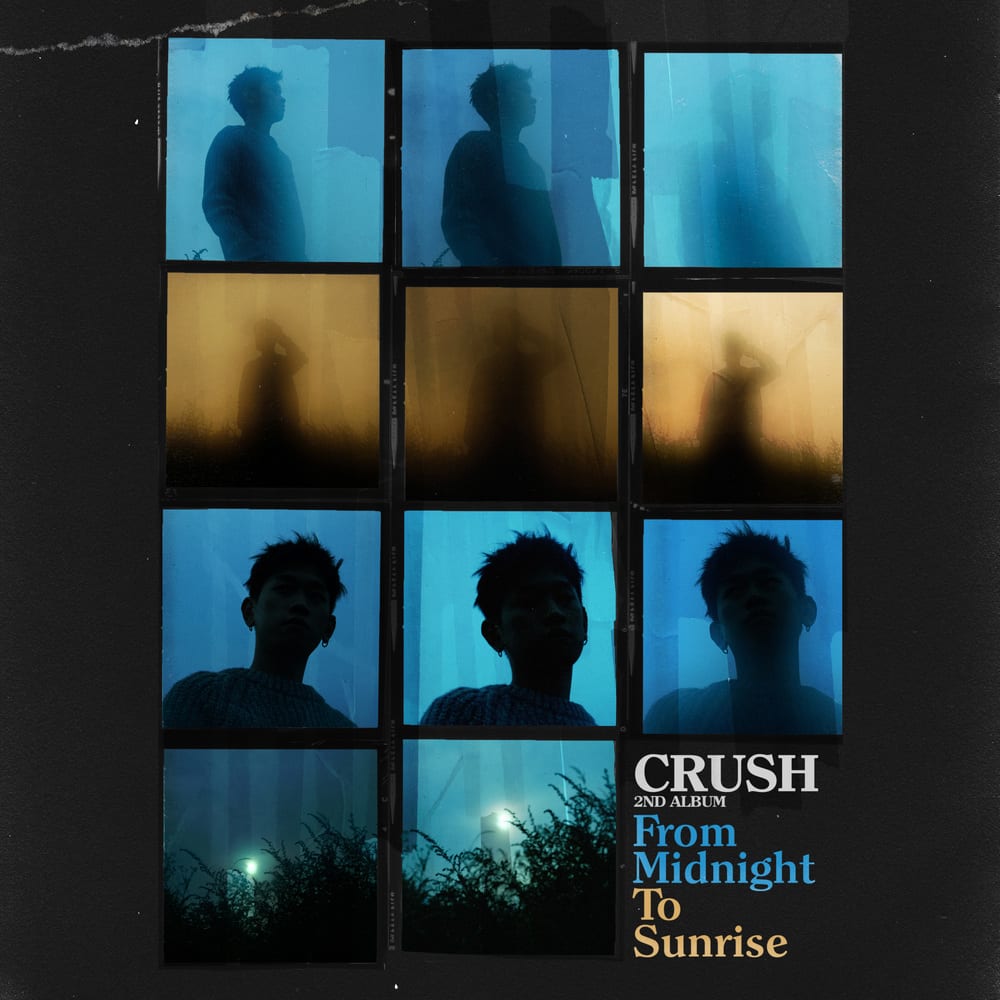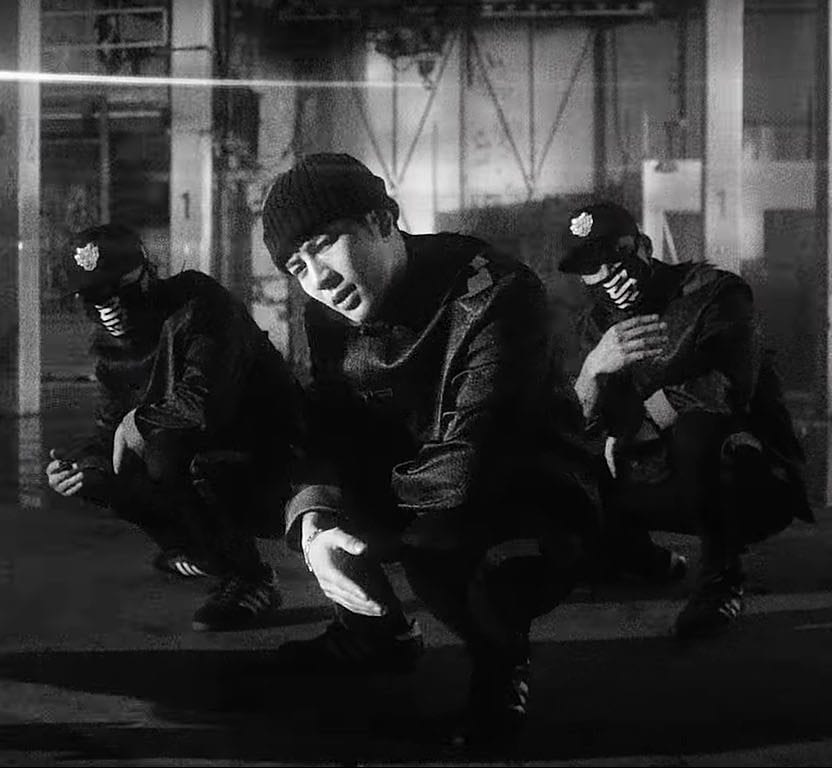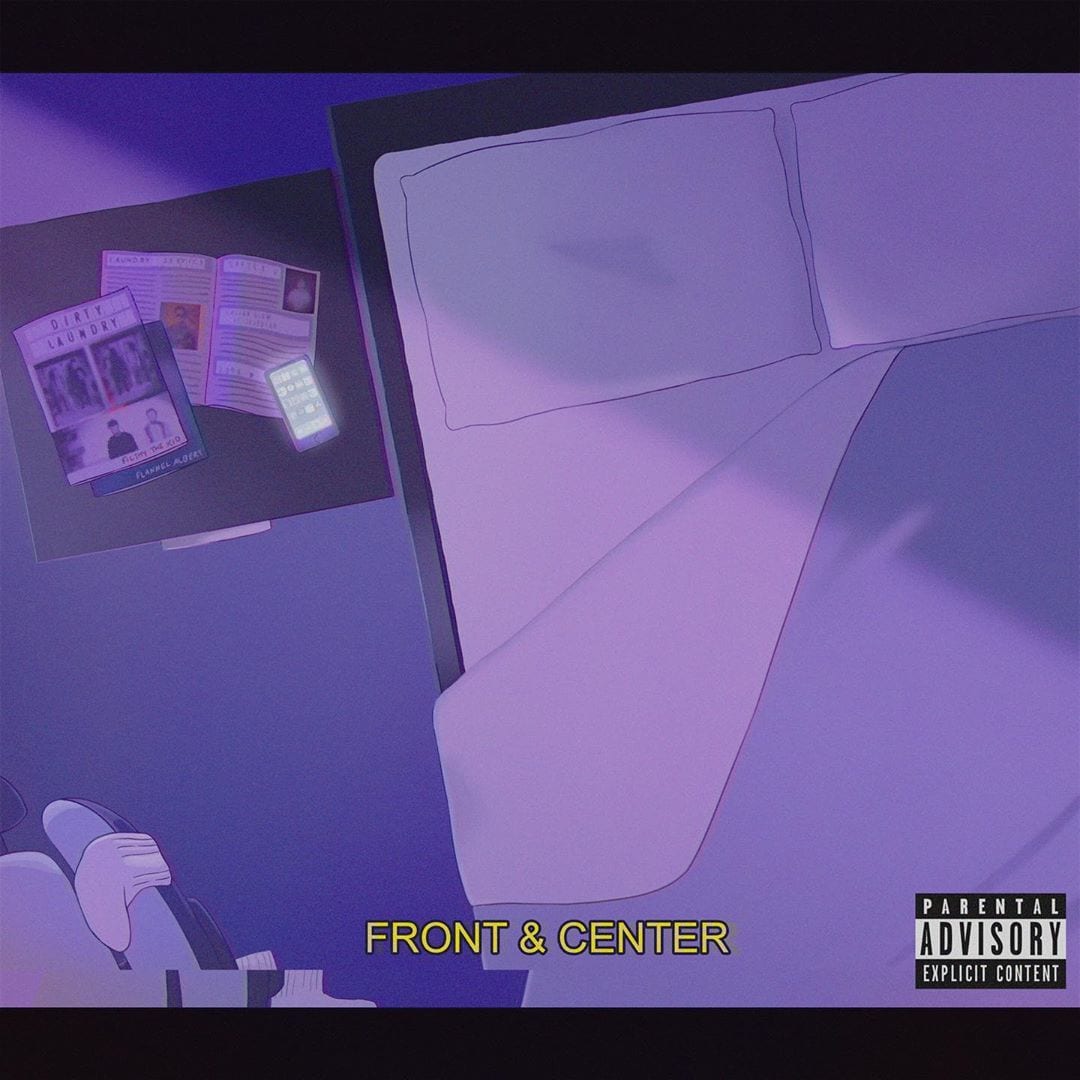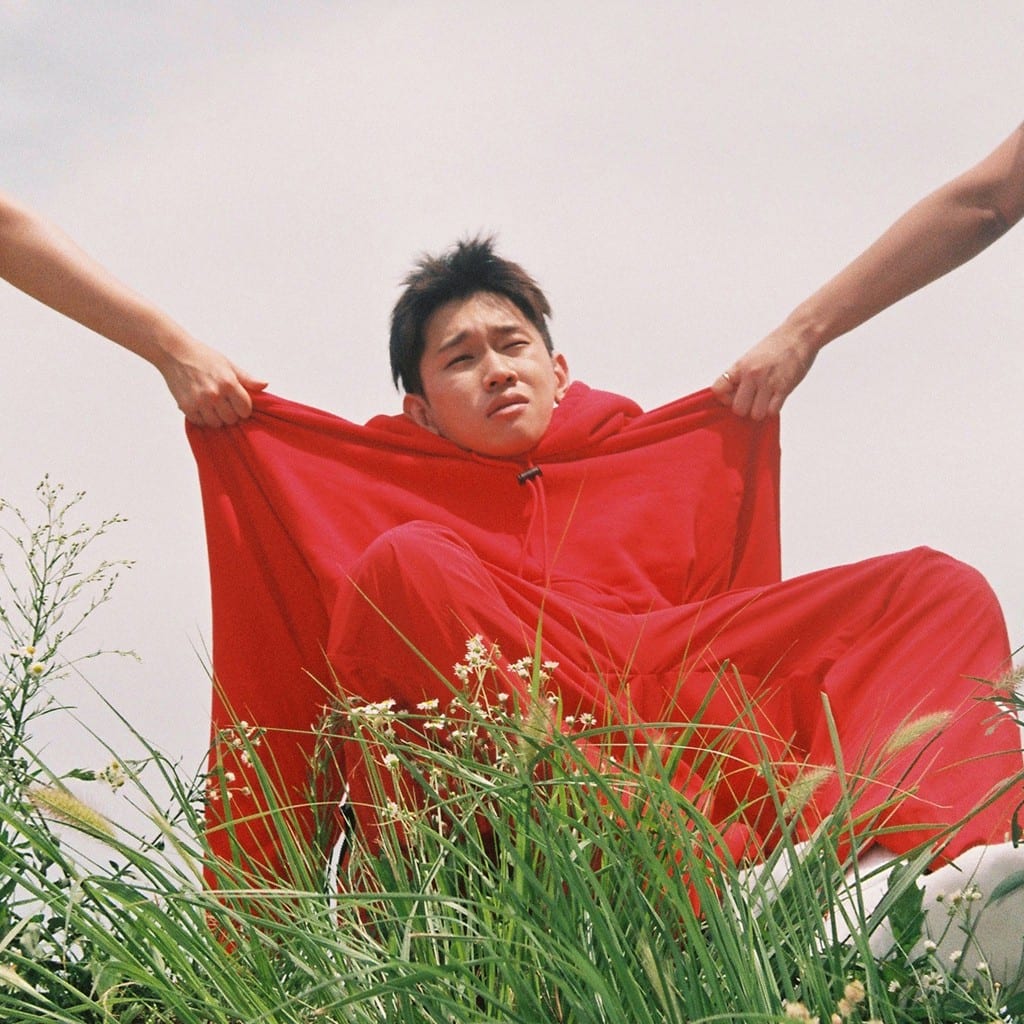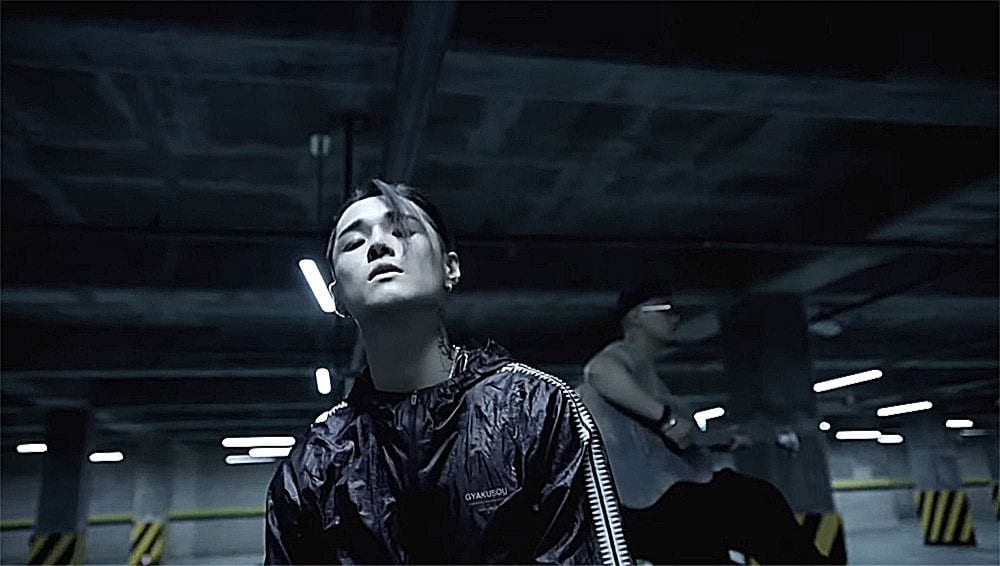LATE LEE has had to unfold himself out of a lot of self-doubt and feelings of being mentally lost. He’s taken long-term breaks from social media to try to find his center on more than one occasion. Out of that exploration and journey to inner peace, he gifted fans his most poignant work to date. His second EP, “12AM.”
V1NO Explores Emotional Emptiness in “Runaway”
It’s truly a blessing to discover new talent. Particularly when they’ve worked so hard through so much to be able to share those talents with the world. Thus we have Paul Shin, now known by the stage name V1NO. This young man has had a life you wouldn’t believe. (But we’ll get more into that in our interview.) Last year he began to pursue his music in earnest. With that came the release of the music video for his song “Runaway.”
G.Soul Reborn from Grief as Golden in “Hate Everything”
It’s been a long two years since G.Soul enlisted. Fans of the honey-voiced singer were elated when he was finally discharged, promising new music upon his return. Almost as soon as he became a civilian again, he signed with Jay Park’s H1GHR Music and changed his stage name to something many would consider more apropos: Golden.
“Darker Liquor” by Flannel Albert: Of Vice & Men
I can’t begin to fathom the depths of Flannel Albert. Never mind I’ve known him for a few years now. The man has an emotional depth that most, including myself, have yet to even scratch the surface of. By now it’s common knowledge that he’s a remarkable writer. He’s mastered the art of false perception. Behind the playful composition and lilt of his melodic rap style, he buries some of the deepest parts of who he is. The darker parts of his melancholy.
Crush’s “From Midnight to Sunrise” is an Aural Masterpiece
Let me just get something out of the way. I got a song and a half into Crush’s latest album and was on the verge of tears. The last time this happened I was at uni. I’d just heard Jeff Buckley for the first time. After getting over the injustice of him having passed away before I discovered him, listening to Grace ripped something in me that’s never been repaired. Dammit, if Crush didn’t widen the crag with From Midnight to Sunrise.
Samuel Seo’s “The Misfit” is a Work of Art
This man just doesn’t know how to make a bad album. It’s like he’s physically incapable of doing so. It makes sense. Samuel Seo doesn’t release work every three months. He takes his time to develop, learn, nurture his sound. It’s obvious in the way he’s crafted The Misfit.
Inspiration vs. Imitation
I will say this. Samuel Seo knows his music. He thrives in the nuance of ’90s R&B and it shows. The risk for artists who derive much of their influence from others is their own voice gets lost. What we get is music that, while good in and of itself, is little more than imitation. Good music that’s good because, well, we’ve heard it before. For a few moments Seo runs into that exact issue. D’angelo is heavy in his sound for The Misfit. In fact, the first two tracks on the album (“Breathe,” “Misfit’s Anthem”) are very similar in style, tone, and delivery to the opening notes of D’angelo’s Black Messiah (“Ain’t That Easy”) and Voodoo’s “Devil’s Pie,” respectively. Dangerously similar.
Tracks “Yeonhui-Dong” and “Olive Session” reach a little further back and take influence from D’s Brown Sugar. I applaud Samuel for his dedication to a genre that he obviously has a great deal of love and respect for. However, I’d caution any artist to be very careful when excavating the discography of legends.
Something Borrowed, Something New
All that in mind, I can’t begrudge the talented musician his affections for the genre. Warnings and even hesitancy aside, from third track “Notting Hill” on, Seo showcases just how versatile his voice is. Not so much the tone or technicality in his singing. Rather, he has a mind for melody. Harmonies that are tightly packed but still have an unimaginable amount of air in the notes.
Even in tracks that have noticeable familiarity, he carries his own groove. A natural bounce and sway to the music that manages to distinguish itself from its influences enough to identify as something uniquely Samuel Seo. “Notting Hill” in and of itself grabs from samba, bits of bossa nova, and undeniable nods to West Coast jazz. (He throws in a few seconds of psychedelic soul at the end for good measure.) An amalgamation of sounds that results in one of the album’s most mystical and technically intricate tracks.
We get songs like “Ice Cube” and “Coastal Wave” that showcase Seo’s relaxed interpretation of neo-soul. Again, while his influences are overt, he manages to inject every ounce of his personality and maintain the aural aesthetic of the jazz-infused R&B subgenre.
From the Soul
What’s most interesting about the way he delivers his music is just how close to its soul roots it is. This is what makes him one of the most consistently good artists to come out of South Korea. His delivery, execution, the way he interprets the music is so genuine. There are moments when he can’t really shake the spectre of his influences. However, even then an observant listener will recognize a man using his voice to pay homage, not imitate.
This results in some honest-to-goodness soul music, separate from nods to his influences. Track “Really That” is a legitimate addition to the genre’s very specific canon. While track “8 8 3” takes the genre and adds a layer. Nods to, of course, D’angelo, but even Tom Browne with the bassline and US3 with the jazz-heavy aesthetic. Not just a nod to R&B. An addition to the conversation. He takes the historical significance of Soul music and adds relevance. Not an imitation. A sound that’s nuanced and personal.
The World According to Samuel Seo
Beginning with the lamenting “Something & Nothing,” the latter half of the album explodes into something more openly emotion driven. This is Samuel Seo in relation to the world around him. While reminiscing about his own evolution as a man, he questions the environment that molded his past. “Something & Nothing,” “Really That,” and “Good Morning” see him reaching inside for inspiration. The overall aesthetic even takes a subtle change. “Good Morning” borrows some of the beat-heavy R&B of Anderson .Paak a la Malibu. Using a combination of West Coast old soul and storytelling that goes further to define Seo’s artistry.
We then come to track “Playaplayaplaya.” The song that most epitomizes the Samuel Seo sound. It’s the jazz-forward R&B/Soul that has defined his aesthetic since Frameworks. Bits of Raphael Saadiq. Heavy on the Soulquarians in musical composition. But there’s just something unique to Samuel Seo in the delivery. He’s never hurried. Never insistent upon himself as a vocalist. The focal point is the feeling. The groove. How the music gets into you and causes you to bob your head, sway to his smooth cadence. All the while integrating very poignant lyricism.
His desire to peel back some of the harsher realities of South Korea’s society is as effortless as the way he incorporates genuine soul into his brand of Soul music. “Ordinary Kids” is his commentary on the strict (many would say overbearing) educational expectations that define much of the country’s backbone. It’s also the most English we hear him use. There’s an almost biting desperation for every listener to sympathize with him. He makes liberal use of repetition. Not redundancy, but reiteration to force the listener to really pay attention. He ends the song a cappella on the same resounding sentiment: “Dreams are born in the streets, no school.”
Emotional Core
Undercutting the entire album is this emotional core. Something that resonates without the listener actually realizing it. It sneaks in through tracks with more of a focus on the overall groove. With the final tracks, specifically “Yi Yu” and “The Misfit,” there’s an urgency to the tone. Something that drastically deters from the overall mellow mood of the rest of the album. You can sense Seo reaching deep into himself to pull out his truth.
In “Yi Yu,” he proclaims, “We all have a reason to live” on an elongated note that resonates even as the song spirals back into lilting instrumentation. “The Misfit” shows him reflective. A man looking back on his journey to this point and acknowledging the need to float away from the expectations of society and even himself. His voice stretches a bit further. He soars on the higher parts of his tenor, voice breaking in an emotional crack at the highest note’s crest. For the first time he deliberately makes use of vibrato. He’s quite literally taken flight, giving his voice the wings to “sail away.”
Conclusion
There’s so much brilliance to glean from The Misfit. Indeed, Seo has certainly proclaimed himself as something of an outsider in a market saturated with R&B crooners. For what it’s worth, that’s not exactly a bad thing. His music sets itself apart because it’s so very meticulous. The Misfit is a work of art. Plain and simple. A relevant piece of R&B-Soul that gets more interesting with every listen.
Follow Samuel Seo:
[icon type=”apple”] [icon type=”facebook”] [icon type=”instagram”] [icon type=”instagram”] [icon type=”soundcloud”] [icon type=”spotify”] [icon type=”twitter”] [icon type=”youtube”]Jackson Wang’s “Raw, Authentic Self”: “TITANIC” Review & Interview
“[Rich] Brian and I joined forces to make the best track to vibe out to with ‘Titanic.’ This song is all about getting hype, dancing, and having fun. I’m proud that we are representing Asian cultures together with this collaboration.”
–HiphopKR interview with Jackson Wang
DIRTY LAUNDRY Need Love in “Front & Center”
FLANNEL ALBERT and Filthy The Kid return with an LL Cool J style love lament. “Front & Center” is the love song we didn’t know we needed.
Crush & the Art of the Flex: “NAPPA” Double Single
When Crush released the double single “NAPPA” at the end of August, it was definitely a reminder of why he’s the best in the game.
The Vocal Genius of DEAN: “Howlin’ 404” Acoustic
When DEAN unexpectedly dropped the acoustic version of “Howlin’ 404,” he reintroduced fans to the power and subtle genius of his voice.
*sigh* So this is the thing about DEAN. In my estimation he doesn’t make bad music. There have been instances where I’ve just not been a fan. But at the end of the day, everything he creates has a vision. A mission to say something relevant with intention.
When he dropped “Howlin’ 404” at the end of May, I was truly impressed. For many, the “pop” appeal is hit or miss. In fact, I’m acutely aware that many people prefer DEAN when he drunk rampages about love lost (a la “Bonnie and Clyde” and “Pour Up”). This new permutation of him as a troubadour trapped in a never-ending loop of introspective melancholy has many people either sighing in something resembling annoyance or ignoring his newer work altogether.
What’s the line? “Tale as old as time”? Since pop music has been a thing, since pretty boys with even prettier voices have been a phenomenon, factions of their “fans” have lost interest as artistic vision (and thus overall tone) has shifted from catchy bops to something significantly darker and more cerebral. DEAN ain’t special in that regard, y’all. I’d argue that his shift has been so significant that people honestly think he’s doing it for attention. That he’s changed for the sake of shaking some sort of K-pop expectation flung on him by the masses. To a certain extent, the latter is true. We’ve seen that more overtly with choices in wardrobe, hair, etc.
However, my loves, the actual musical shift we see in DEAN’s choices has so much more to do with the internal than anything superficial. Yes, his music has seemingly become darker. But no one has actually stopped to consider the why of it all. If they have, it’s no more than a blip on their radar as they either fawn over or bemoan what might be considered his “emo” phase.
Then about a week ago DEAN dropped the acoustic version of “Howlin’ 404” on the world. No fanfare. Hell, he didn’t actually say anything about it. People went to bed on Thursday. Early Friday morning, there was this veritable bomb dropped on his VEVO channel.
Let me tell you something. When his voice hits the very first note of the song, my heart stopped. Call me an overemotional fangirl if you want to. That’s not going to change the very visceral reaction I had when I heard him swoop in practically a cappella. Takes me back to the emotions I felt when I first listened to (and every subsequent listen afterward) Frank Ocean’s “Seigfried.” Utter heartbreak. Sheer emotional brokenness.
On its own, “Howlin’ 404” is his most introspective, self-searching song since “Instagram.” Yes, it’s dark. In a nutshell confessing that he’s trapped in a vicious cycle of desire–self-loathing–desire. That when he’s caught in this wonderland of oftentimes self-inflicted but always acute pain, he’s incapable of keeping himself sober. Whether that’s a metaphor (which he’s wont to use liberally in his music, especially visually) or an unabashed confession is still up for interpretation. The fact that he decided to release this acoustic rendition of the song suggests that he is trying to unburden his heart. That he’s attempting with the wail in his tone to purge his soul of something that he hasn’t been able to shake since somewhere around the release of “Instagram.”
This is where things become incredibly emotional for me. This is honestly the rawest I’ve heard DEAN vocally in a very long time. His live performances for me have been hit or miss. Yes, there’s a difference between watching live and watching on a computer screen. But passion, technique, and actual emotional stake translate.
My main gripe with him for the past year or so has been his insistence on using a backing track instead of a live band in his performances. In my opinion, singing over instrumentals of his limited discography has sucked the passion out of him. It certainly hasn’t forced him to stretch his vocal skill set as working with organic instrumentation would.
There are moments when you can tell he’s got something on his mind and a particular song just awakens it. Consider this performance of “Instagram” in Manila. Or any time he performs someone else’s music (Corinne Bailey Rae’s “Like a Star”; Daniel Caesar’s “Won’t Live Here”). However, by and large I’ve not felt any of the passion of say when he performed with a full band at RESFFECT in 2016. Or more recently his interpretation of N.E.R.D.’s “Sooner or Later” at Seoul Jazz Festival. But again… not his song.
Then he drops this acoustic version of “Howlin’ 404.” I’ve not heard him stretch his range in such a long time. Heard him put his entire being into singing. For the first time in I don’t know how long, I believed him. In that belief, I felt an uncanny sadness. I’ve not been able to shake it since I first listened to this rendition.
A parking garage is apt. In its own way it’s a void. An empty space that seems endless (we don’t actually see the exit for this place). It works even further to illustrate the solitude (read: isolation) he feels at this very moment. The fact he’s in a space that ricochets his voice off every surface further throws him in a spiral. He’s howling in a wolf’s agony. (The wolf howls when he’s lost his pack, hoping they’ll respond so he can find them.) However, the only howls that come back to DEAN are his own.
There’s a teardrop in his voice here that utterly breaks me every time I listen to the song. On its own “Howlin’ 404” already illustrates his vocal dexterity. But obviously stripping away the digital nuances he intentionally brought to the single does the job of highlighting just how powerful his voice is. Many sometimes jokingly point out the feather-lightness of his tone. How there’s something utterly gentle in the way he delivers his falsetto.
However, in “Howlin’ 404” (particularly this version of it) we’re made even more aware of his actual technique. He uses breath so expertly. Allowing silence to fill spaces that in the past he’s been prone to fill with unnecessary melismatic twists and turns. Here, we’ve got a man that’s just singing. For his very life. His voice utterly brims that entire space, from wall to wall. Love or hate the song for what it represents, with just his voice and a guitar, DEAN has proven just how much power he’s capable of.
When he strips away all pretense, he’s actually quite gifted. To slide from head voice (at the height of the howl) to chest voice (when the howl crests) without a single crack takes incredible control. He opts for almost no vibrato in this performance. He goes for a pure vocal (a la Sade), further stamping the song’s emotional depth. Less pretty. More dirt under the nails. Gritting his teeth. Eyes closed. Fists clenched. Singing from the diaphragm to give us a fuller, rounder delivery. There are no gaps in this performance. Every nook and cranny has the complete breadth of his voice. When he leaves his falsetto and goes for a full-throated tenor, it’s like a punch to the gut.
DEAN absolutely sings this song with his entire chest. A cute phrase it might be. However, it couldn’t be a more apt description. What you might have forgotten in the interim between his debut album and this very moment is that DEAN is actually a singer. He’s got range and a hypnotic way to stretch his vocals when there’s truth behind them. When the pulse of the song is his own heartbeat. When “DEAN” gets stripped down to the barest elements and we’re gifted a glimpse at Kwon Hyuk.
Thank you, DEAN. Thank you for sharing your truth with us. If only for three minutes and forty-seven seconds.
